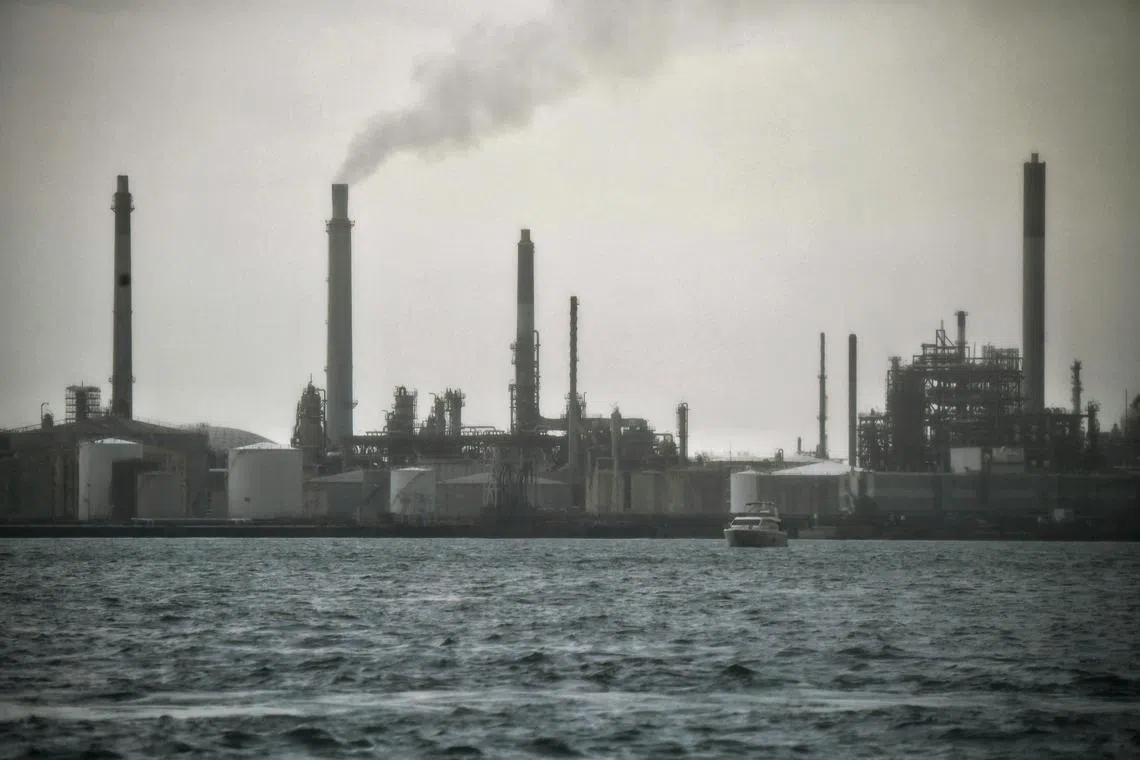Imposing windfall taxes on oil firms is populist, will deter investments in clean energy: Chee Hong Tat
Sign up now: Get ST's newsletters delivered to your inbox

In 2022, energy companies are benefiting from high oil and natural gas prices.
ST PHOTO: KUA CHEE SIONG
Follow topic:
SINGAPORE - Taxing energy companies arbitrarily on their recent windfall profits will lead to business uncertainty and disincentivise long-term investments in the energy transition, Senior Minister of State for Finance Chee Hong Tat told Parliament on Tuesday.
This will ultimately make it harder for Singapore to achieve its ambitious decarbonisation targets, he said in response to a question from Workers’ Party MP Louis Chua (Sengkang GRC).
Mr Chua had asked if the Ministry of Finance would consider imposing windfall taxes on big oil companies, considering their record profits over the past year.
In 2022, energy companies are benefiting from high oil and natural gas prices, partly fuelled by the war in Ukraine, as Russia chokes off gas flows to Europe.
Consumers around the world are not just grappling with high fuel prices at the pump, soaring energy prices are being passed on to delivery costs, driving up the costs of basic household items.
Mr Chee said: “In the light of global oil and gas prices over the past year, some countries have introduced windfall taxes on the profit of energy companies. Such taxes can yield short-term revenues, but they will damage the economy in the longer term.”
In September, European Union nations agreed to back levies on energy firms’ windfall profits
Mr Chee warned that such arbitrary moves could send the wrong signal and discourage investments by the energy companies in developing cleaner fuels that would help Singapore hit its net-zero targets set for 2050.
“It is typical for energy companies to experience up and down cycles. Higher profits in good years help these companies smooth out past losses and prepare for future down cycles,” he said.
“Energy companies holding back on investing in greener fuels and decarbonisation measures will make it harder for (Singapore) to achieve our net-zero targets.”
Mr Chee noted that Singapore’s value proposition as a trusted business hub has been based on the country’s long-term stability, anchored in the rule of law and a predictable regulatory environment.
He added that arbitrary measures such as windfall taxes will send the wrong signal to businesses and discourage them from investing in Singapore.
“This will erode investor confidence and, in turn, affect Singapore’s competitiveness and the livelihoods of our workers, who could either lose their jobs or have fewer career advancement opportunities when businesses divert investments elsewhere,” he said.
“We must not let the temptation of short-term revenue gains come at the expense of our long-term economic competitiveness.
“We must be careful not to resort to populist ideas to raise revenues that will ultimately hurt businesses, hurt our economy and hurt Singaporeans.”

